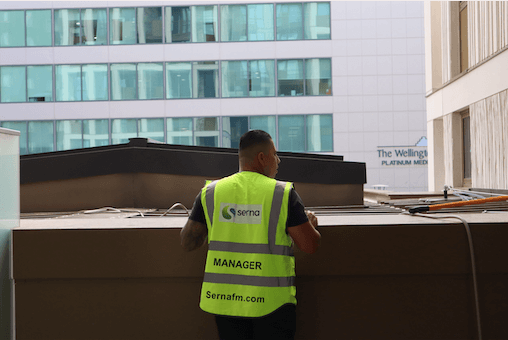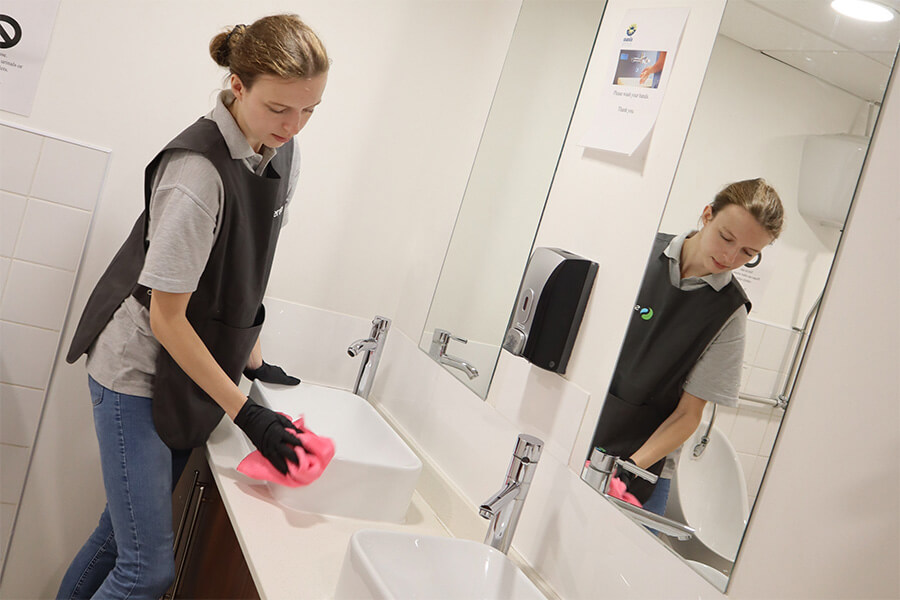Facilities management belongs to the service industry and plays a vital role in supporting the core operations of virtually every other sector, from education and healthcare to retail, government and commercial business.
At its heart, facilities management is about keeping buildings, people and infrastructure running smoothly. It is the behind-the-scenes engine that ensures offices are safe, hospitals stay clean, schools are secure and public buildings are operational. Facilities management encompasses a broad range of services, including maintenance, cleaning, security, catering, health and safety, energy management and space planning.
How Does Facilities Management Support Other Industries?
What makes facilities management unique is its cross-cutting nature. While it is classified within the service industry, it serves as a backbone to other industries. For example, in a hospital, facilities management ensures that the wards are sanitised, equipment is maintained and waste is handled safely. In an office tower, it covers everything from heating systems and lifts to cleaning, front-of-house reception and meeting room coordination.
This means that while it is an industry in its own right, it is also deeply embedded in every other industry. Without effective facilities management, essential sectors would simply not function efficiently or in some cases, at all.

What Are the Main Types Of Facilities Management?
Facilities management is typically divided into two broad categories:
- Hard FM – This includes the physical, built environment, such as HVAC systems (heating, ventilation and air conditioning), plumbing, lighting, fire safety systems and ongoing building maintenance.
- Soft FM – This refers to non-technical services that support the day-to-day experience of building users. This includes cleaning, catering, pest control, reception, post-room services and security.
Together, these elements create safe, welcoming and functional environments for people to work, study, heal or interact in.
How Has The Industry Evolved In Recent Years?
Facilities management has become increasingly sophisticated in recent years. Far from being a purely reactive or maintenance-driven field, it is now seen as strategic and forward-thinking.
Modern facilities management professionals are involved in sustainability planning, workplace design, technology integration and even staff wellbeing. With the rise of hybrid working, facility management teams are managing hot-desking and ensuring digital systems support seamless collaboration.
Why Is Facilities Management Important?
Good facilities management doesn’t just make spaces usable but it improves productivity, supports health and safety, reduces costs and enhances an organisation’s brand. Examples include:
- In education, well-managed buildings help students concentrate and learn in a clean and comfortable environment.
- In healthcare, facilities management can be the difference between a smooth patient journey and critical disruption.
- In business, a well-maintained and pleasant workplace can support staff retention and morale.
Energy efficiency is another key area. Facility management teams are often responsible for reducing carbon footprints through smarter heating, lighting and waste systems. As environmental responsibility becomes a legal and ethical necessity, facility managers’ roles in sustainability continues to grow.
How Is Technology Changing Facilities Management?
Like many industries, facilities management is undergoing a digital transformation. From smart sensors that monitor building usage to apps that allow occupants to report maintenance issues instantly, technology is changing how facilities are managed.
Computer-Aided Facilities Management (CAFM) software are now common tools. They allow managers to oversee multiple sites in real time, schedule preventive maintenance and optimise energy use.
The integration of tech also brings facilities management into direct alignment with corporate strategies. Data gathered by facilities management systems can inform decisions about space usage, energy spend and workforce needs, helping organisations become more agile and cost-effective.
Is Facilities Management A Regulated Profession?
While there is no single regulatory body overseeing the entire sector, many of its functions fall under existing UK legislation, such as the Health and Safety at Work Act, Fire Safety Order and Control of Asbestos Regulations. Additionally, professional bodies like the IWFM (Institute of Workplace and Facilities Management) offer accreditation and best-practice guidance.
Many facilities managers hold qualifications in engineering, health and safety, environmental science or management and increasingly, apprenticeships and university degrees are tailored to the profession.
What Career Opportunities Exist In Facilities Management?
Facilities management offers a wide range of career paths. Entry-level roles may include cleaning operatives, caretakers or help desk coordinators, while senior professionals might work as facilities managers, estate directors, sustainability leads or workplace strategists.
Since facilities management is relevant to so many sectors, there is a high degree of mobility. Someone with experience managing a school site may transition into a similar role in retail, logistics or public service.
Soft skills such as communication, problem-solving and time management are as important as technical know-how, and the career path often allows for significant progression without the need for a conventional office background.

Summary
Facilities management sits at the heart of the service industry and acts as an essential enabler for nearly every sector in the UK. Though often behind the scenes, it plays a frontline role in health, safety, sustainability and performance. As workplaces evolve, the importance of facilities management is only growing, making it not just a supportive industry but a strategic one that shapes how people interact with the world every day.

